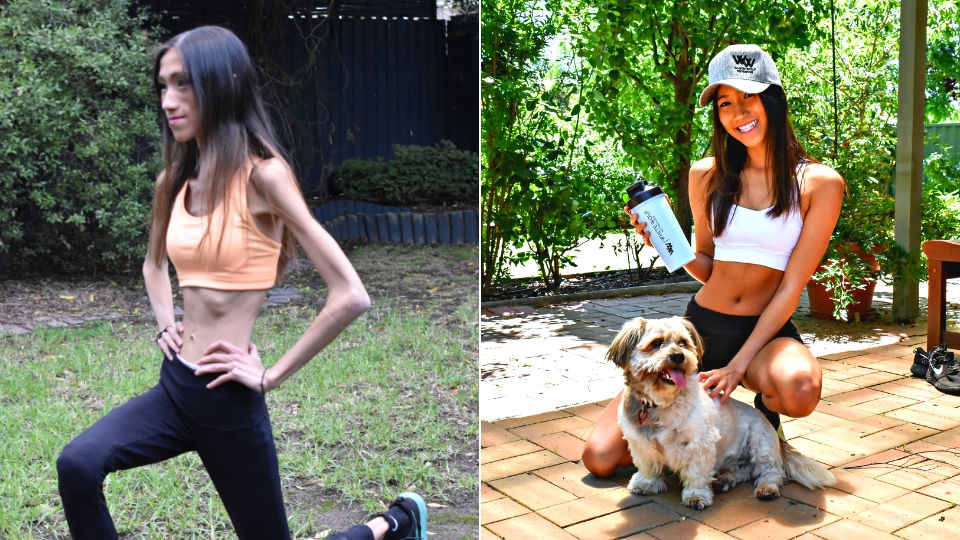Conducting an interview with Sarah Ravindran is like trying to catch a butterfly. Despite being only 20, this Malaysian-born medical student has launched an Instagram page that attracted 1.6 million followers, most of whom marvel at her story about the eating disorder that nearly ended her life.
A published author of two e-books titled “Beginner’s Guide to Clean Eating” and “Eating Clean Made Easy” and a black belt karate teacher, now Sarah is an advocate for healthy living and she’s sure to inspire you. How many lifetimes has Sarah lived? Just one. But what a life it has been!
RS: How is medical school going?
Sarah: I took a gap year in 2018 to put my health and recovery first. I return in February 2019 and expect to face problems, but my work ethic and dedication will help me get back into the swing of things.
RS: Have you traced the roots of your eating disorder?
Sarah: Being a perfectionist (“Type A” personality) was the biggest contributor. I had to get the highest exam score or longest run time. When I began to think, “I only ate 400 calories yesterday, why not aim for 300 today?” I realised this was getting dangerous. It’s ironic that the personality trait that allows me to achieve so much turned out to be a curse.

RS: How did you get over your fear of food?
Sarah: My food disorder was sapping my life and happiness and I was willing to do anything to recover. I turned to a GP, psychologist and dietitian. I deleted MyFitnessPal and stopped counting calories. The first day I went without obsessing over calories was absolutely liberating.
RS: Did you tempt yourself with “unhealthy foods”?
Sarah: It was amazing. Each time I ate an “unhealthy food” I realised that nothing changed, except that I enjoyed every bite. These foods, I learned, are not my enemy. Indulging on occasion doesn’t affect my health. In fact, some indulgences are as good for the soul as veggies and lean proteins are for the body.
RS: Who was your greatest supporter during this trying time?
Sarah: My Instagram followers gave me overwhelming support. Their outpouring of encouragement kept me going. I was fearful they might blame me; that they would think me weak and self-destructive. Instead, they helped me realise that I’m not alone.
RS: Having begun your journey to recovery, how will you move forward?
Sarah: I want to show sufferers that there is so much more to life than anorexia by setting an example and showing that it is better to thrive and live than to be controlled by food and exercise.
RS: Having gotten back to a healthy weight, how has your life changed?
Sarah: I’m stronger and more energetic; I’m less irritable and moody. Physically, I don’t get heart-related chest pains and I no longer suffer nosebleeds, symptomatic of an unhealthy liver.

RS: Have you turned into a social butterfly?
Sarah: Yes. I’ve stopped declining invites and can honestly say that I enjoy quality time I have with friends instead of stressing about what we are eating or whether there’s time to exercise. Recovering has opened many doors for me now that I have broken free from my prison.
RS: What is your diet like now?
Sarah: It’s flexible. There are no foods that I won’t eat, nor do any foods scare me. When I was trying to gain weight, I ate seven meals a day. Now I eat three plus three snacks that include veggies, lean protein and complex carbohydrates. I still go out with friends for pancakes, burgers and tacos.
RS: What is a typical day of eating like for you?
Sarah: Toast with peanut butter and milk for breakfast, a banana and protein bar snack; lunch may be a tuna sandwich. I have yoghurt with Muesli and fresh fruit in the afternoon. Dinner is usually half a plate of veggies, brown rice, chicken curry, three scoops of ice-cream and a cookie. All things can be enjoyed in moderation!
RS: Do you still train and condition?
Sarah: I stopped all forms of exercise for two months before returning to the gym to lift weights and rebuild lost muscle. The only cardio I do is walking, which clears my head, especially when the weather is lovely.

RS: What advice do you give to others who suffer from eating disorders?
Sarah: I tell them that they are not to blame but I also say that it is their responsibility to recover from this mental illness. The process is long and arduous, but if you seek help and work toward recovery, you can free yourself from the mindset that has held you captive for years. The end result is so worth the fight!
Sarah’s enthusiasm is contagious. She says,
“Recovering has opened so many doors for me and I am filled with delight when I think about what lies ahead. If there’s one important lesson I share with others it’s this: make sure you listen to your body and always put it first.”
Awesome advice, Sarah. Your wisdom belies your young age. We can’t wait to see what the future holds for you. For more inspiration, you can follow Sarah on Instagram @sarahrav
Have you been battling a food disorder? What happened that finally made you declare, “Enough! I want to recover?”
[su_box title=”Help to Fight Eating Disorder for Women” box_color=”#272469″ title_color=”#ffffff” radius=”4″]Join Sarah on International Women’s Day this year as she will be participating in Spacebib’s International Women’s Day Online Race to inspire and help women in the same situation as she was, along with raising awareness around what a serious mental illness an Eating Disorder can be.[/su_box]



